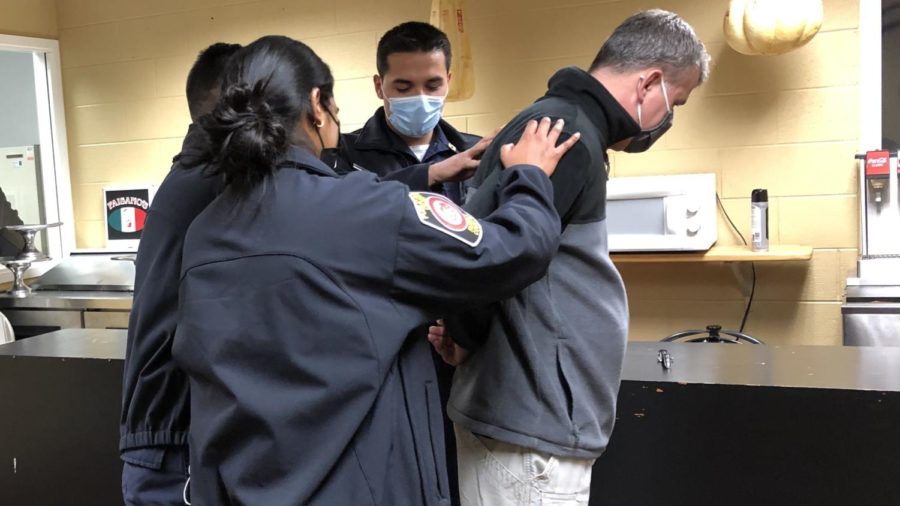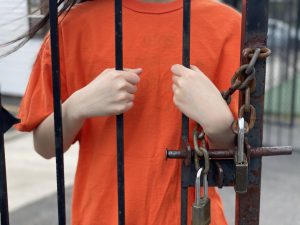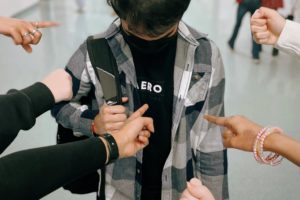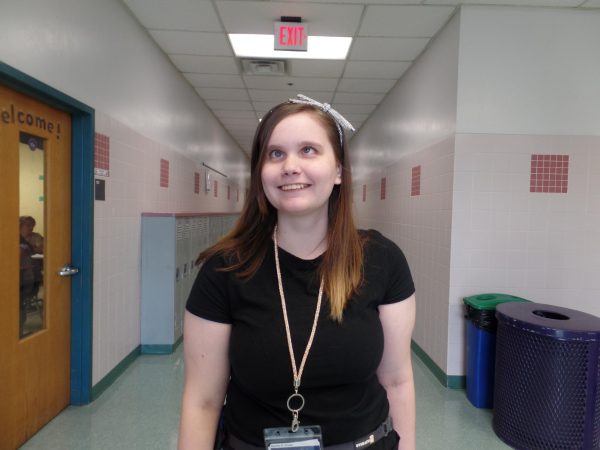Criminal justice class, FCPD Public Safety Cadet program help prepare for work in law enforcement
Public safety cadets first lieutenant Aadhira Jawahar, second lieutenant Safal Baniya and captain Jose Romero-Gonzalez practice handcuffing MPO Genus at the Fairfax County police academy on Feb. 7.
February 27, 2022
While traditional classes read textbooks and listen to lectures, criminal justice teacher Phillip Leger engages his classes in hands-on simulations and welcomes guest speakers to familiarize students with law enforcement. Some of his students are also Fairfax County Public Safety Cadets to learn even more about what it’s really like to work in law enforcement.
“We do all three aspects of criminal justice. I am doing it from a law enforcement perspective. We do law enforcement, court, and corrections,” Leger said.
Prior to coming to CHS, Leger was an Alexandria sheriff’s office deputy for 8.5 years, working as part of their warrant and gang units. He has also been in the United States marshal service and task service, and worked at the jail in the courthouse.
Leger covers more introductory topics with his level 1 classes and compounds on this knowledge in Criminal Justice 2.
“This year we’ve done handcuffing, fingerprinting and we’ve started doing crime scene investigations,” Leger said.
He regularly hosts guest speakers like commonwealth attorneys, Fairfax County police helicopter pilots, agents from the Federal Bureau of Investigation (FBI) and others to expose his students to the variety of careers they may pursue.
“I’ve had a whole array of people in the criminal justice spectrum,” Leger said. “What I want to do is introduce it to kids that might have an interest in law enforcement.”
Guest speakers give students the opportunity to learn more about careers they hope to have from someone with personal and professional experience.
Though he doesn’t go to CHS for the majority of his classes, Thomas Setlik comes to take Leger’s criminal justice class in the academy.
“I’m someone who hopes to get into the FBI so I’ve enjoyed the FBI speakers,” South Lakes High School senior Thomas Setlik said. “We’ve had three of them this year. We had a canine unit from the state troopers come in and in the future we’re going to have the United States park police.”
The Fairfax County Police Department offers programs (Cadets and Public Safety Cadets) that allow hopeful police officers to be involved with the department before they’re old enough to apply to enroll in the academy.
“You have to be between 14 and 21 years old, go through a minor background investigation,” school resource officer James Maeng said. “You just have to be very interested in the program and it has to be something that you want to do.”
Interested in being a special agent in the FBI, Setlik is a public safety cadet which offers him the opportunity to build an understanding of the inner-workings of law enforcement procedure. Setlik has also taken a course offered by the FBI for future agents in training to further his knowledge of the bureau.
“The criminal justice teacher from the 2020 school year put out an announcement that the application was open and I thought I might give it a try,” Setlik said. “I wanted to get some basic understanding and training of what law enforcement is so I thought that it would be a really unique opportunity to gain training and also get some practice in leadership.”
Public safety cadets are taught a variety of skills from laws and traffic stops to crime scene processing and arresting criminals.
“They get a taste of what it’s like to be an officer,” Maeng said. “I’m a mentor for the program and I go to meetings and teach classes and hold practicals.”
Setlik applied for the public safety cadet program around mid-2020 and the process took 2-3 months.
“You send in the form, and they review it and notify you of an interview,” Setlik said. “They just ask you a few questions. What are you looking for in the program, how do you think you’re going to benefit our program, and then they’ll let you know afterwards if you have been accepted.”
Once accepted, Fairfax County public safety cadets learn through classroom-style teaching as well as practicals or role-playing.
“With powerpoint slides, we walk them through the steps you need to do, you show them what you’re going to be doing as an officer,” Maeng said. “Then, once you’re done with that, you actually go out there and do a fake traffic stop. It’s like acting.”
Meetings in the police academy allow public safety cadets to utilize real police training equipment when they meet.
“One interesting aspect that is different from here is that at the academy they have a large room that’s set up like an urban marketplace,” Setlik said. “There’s multiple stores, apartments, that kind of thing so we do practicals there, versus here where we need to imagine most of the time because we don’t have that open to us. And all the genuine police gear, all the defensive gear we’re able to experience.”
Overall, Setlik feels that taking criminal justice alongside being a public safety cadet has been worthwhile.
“I think some of the things I’ve learned at PSC (Public Safety Cadets) has helped me get a head start on some of the topics in criminal justice class. It was nice to have an early-on understanding so I wasn’t coming in completely blind,” Setlik said. “I would say both prepared me for the other.”






